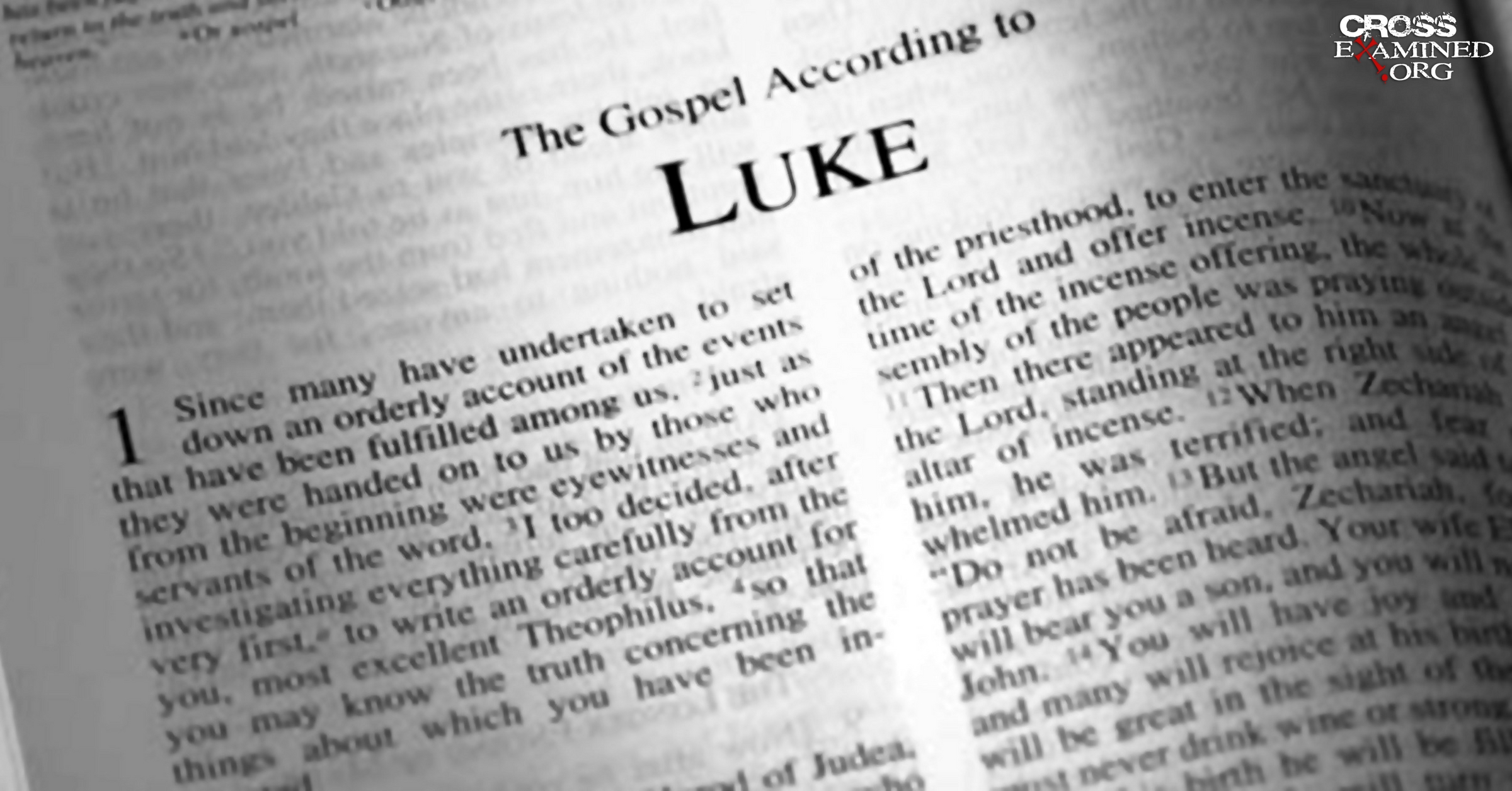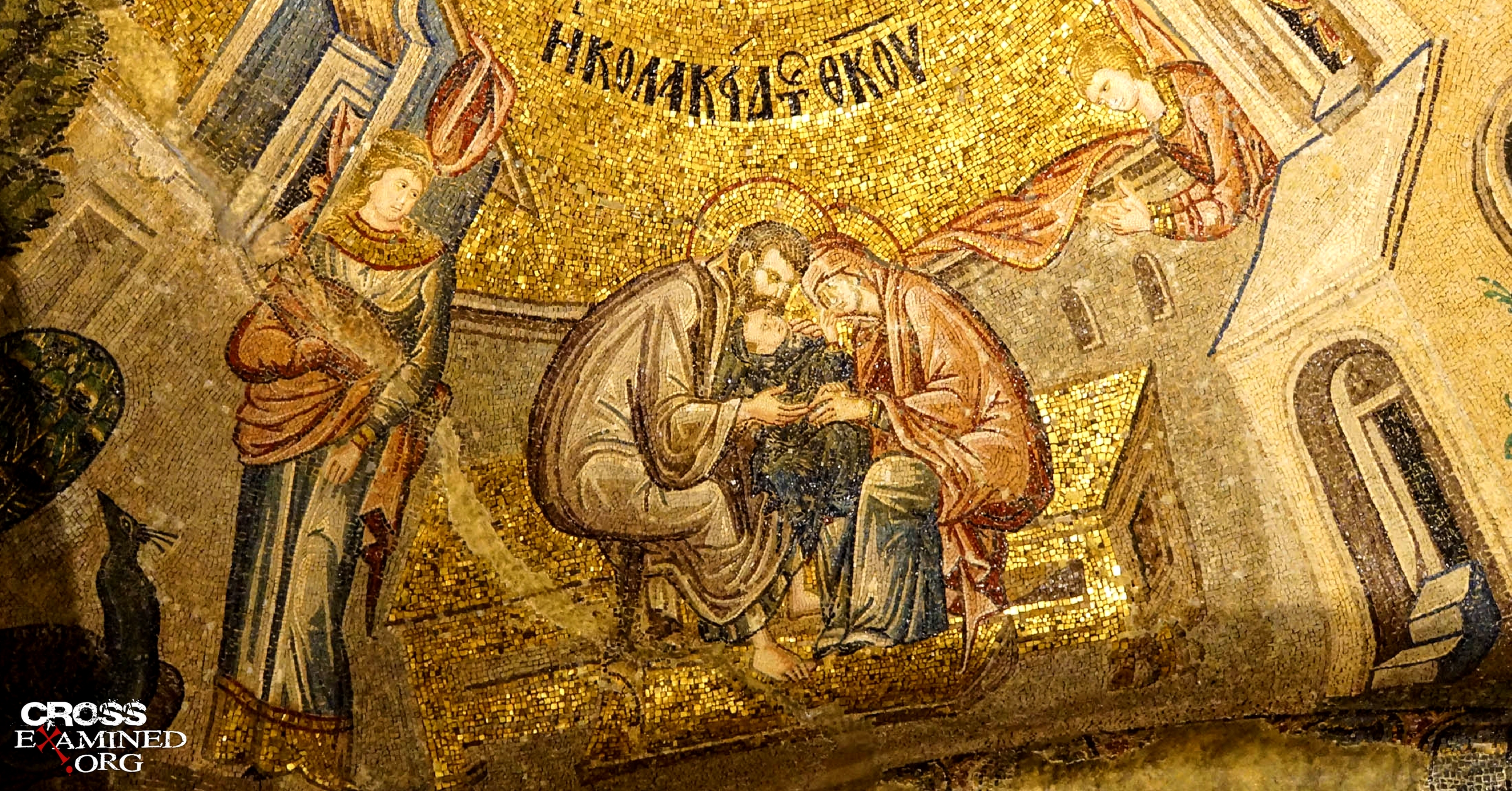Did Jesus Appeal To Evidence When Reaching Out To Skeptics?
Investigation in progress.
From Eric Chabot of Ratio Christi – Ohio State University.
He lists eight ways that Jesus makes his case.
Here’s one of the ways:
Jesus Appealed to Evidence
Jesus knew He could not show up on the scene and not offer any evidence for His Messiahship. In his book On Jesus, Douglas Groothuis notes that Jesus appealed to evidence to confirm His claims. John the Baptist, who was languishing in prison after challenging Herod, sent messengers to ask Jesus the question: “Are you the one who was to come, or should we expect someone else?” (Matt. 11:3). This may seem an odd question from a man the Gospels present as the prophetic forerunner of Jesus and as the one who had proclaimed Jesus to be the Messiah. Jesus, however, did not rebuke John’s question. He did not say, “You must have faith; suppress your doubts.” Instead, Jesus recounted the distinctive features of His ministry:
“Go back and report to John what you hear and see: The blind receive sight, the lame walk, those who have leprosy are cured, the deaf hear, the dead are raised, and the good news is preached to the poor. Blessed is the man who does not fall away on account of me.” (Matt. 11:4-6; see also Luke 7:22).
Even in the Messiah Apocalypse, which is dated between 100 and 80 B.C.E mentions a similar theme as seen in Matt.11: 4-6: “He [God] frees the captives, makes the blind see, and makes the bent over stand straight…for he will heal the sick, revive the dead, and give good news to the humble and the poor he will satisfy, the abandoned he will lead, and the hungry he will make rich.”
Jesus’ works of healing and teaching are meant to serve as positive evidence of His messianic identity, because they fulfill the messianic predictions of the Hebrew Scriptures. What Jesus claimed is this:
If one does certain kinds of actions (the acts cited above), then one is the Messiah.
I am doing those kinds of actions.
Therefore, I am the Messiah.
And:
The Miracles of Jesus
In the Bible, miracles have a distinctive purpose: they are used for three reasons:
1. To glorify the nature of God (John 2:11; 11:40)
2. To accredit certain persons as the spokesmen for God (Acts 2:22; Heb. 2:3–4)
3.To provide evidence for belief in God (John 6:2, 14; 20:30–31). (3)Nicodemus, a member of the Jewish ruling council, the Sanhedrin, told Jesus, “‘Rabbi, we know you are a teacher who has come from God. For no one could perform the miraculous signs you are doing if God were not with him’ ” (Jn. 3:1–2). In Acts, Peter told the crowd that Jesus had been “accredited by God to you by miracles, wonders and signs, which God did among you through him” (Acts 2:22).
In Matthew 12:38-39, Jesus says, “A wicked and adulterous generation asks for a miraculous sign! But none will be given it except the sign of Jonah the prophet.” In this Scripture, God confirmed the Messianic claim when Jesus said the sign that would confirm his Messiahship was to be the resurrection.
It is important to note that not all witnesses to a miracle believe. Jesus did not do His miracles for entertainment. They were done to evoke a response. So perhaps Paul Moser is right on target in what he calls “kardiatheology” – a theology that is aimed at one’s motivational heart (including one’s will) rather than just at one’s mind or one’s emotions. In other words, God is very interested in moral transformation.
We see Jesus’ frustration when His miracles did not bring the correct response from his audience. “Even after Jesus had done all these miraculous signs in their presence, they still would not believe in him” (John 12:37). Jesus himself said of some, “They will not be convinced even if someone rises from the dead” (Luke 16:31). One result, though not the purpose, of miracles is condemnation of the unbeliever (cf. John 12:31, 37). (4)
I am forever pointing this out to people. Jesus didn’t get people to follow him because he was nice. And he didn’t just talk to people who agreed with him. He even promised “a wicked generation” his resurrection as evidence for his claims. He called his resurrection “the sign of Jonah”, and it was meant for people who were looking for a “sign”. This is the way we should be – using whatever evidence we can dig up from science, history, law, and even the social sciences (when arguing moral issues).
Read the rest here. Surprise! Jesus loves to convince people, and not just by quoting the Bible to people who already accept the Bible, either. His goal was not to make people accept his claims because of their feelings, but because of the evidence, he offered them.
Original Blog Source: http://bit.ly/2PXLO94












Leave a Reply
Want to join the discussion?Feel free to contribute!